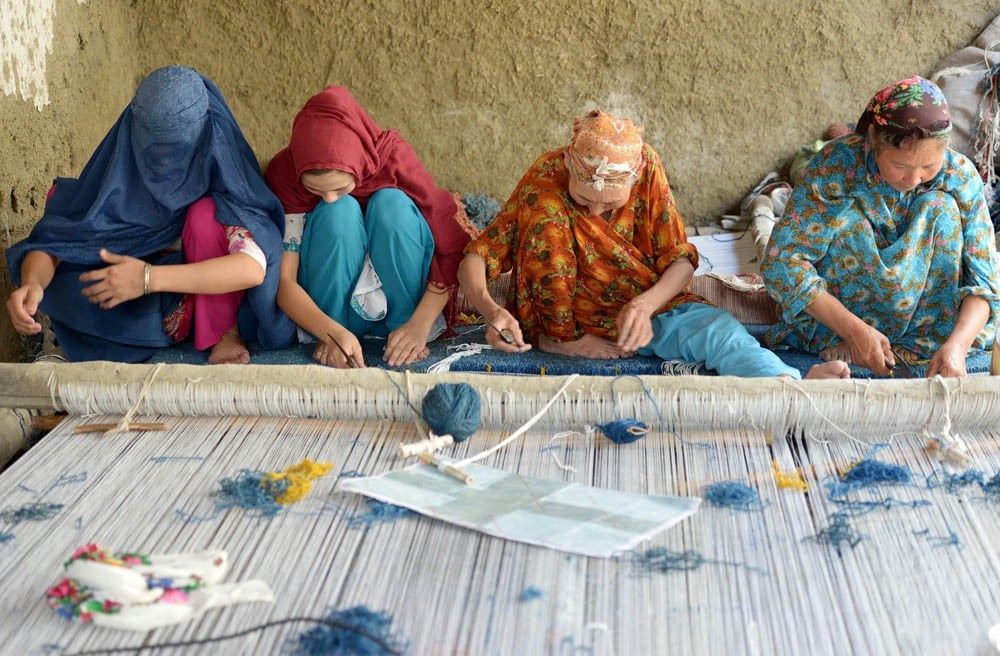
Will 8.5 million domestic workers ever get their due rights?

Around 8.5 million domestic workers in Pakistan are looking for their rights to be recognised. Domestic workers are a significant portion of the informal economy which is unregulated and uncovered by labour laws of the state and provinces and are vulnerable to all kinds of exploitation. Around 83 per cent of these workers are women and young girls and many are migrant workers.
It is surprising that observing ‘Labour Day’, generally signifies a day being observed for factory workers only. Female workers, home-based workers and domestic workers are hardly considered as a part of labour reforms and Labour Day’s activities. There is a dire need to look into the issues of these workers, especially the domestic workers, for which the government and non-government organisations have now brought the issue on the agenda of their deliberations.
In Pakistan, a bill has been drafted and submitted to the Senate which elaborates provisions on age, contract signing, minimum wage, social security and formation of associations or trade unions etc. A Domestic Workers Bill has also been drafted by the Punjab government and presented to the cabinet. However, more important is the change in our attitudes towards these workers.
For decades, domestic workers in Pakistan were the most exploited amongst all workers, toiling long hours for meagre pay and performing unappreciated tasks. Female domestic workers -- mostly found working in homes of the middle and upper classes -- are relegated to the position of second-class workers and suffer exploitation and frequent abuse. Living in private homes, these workers are isolated and completely dependent on the people paying their wages.
It is interesting to note that the issues of domestic workers are being tackled by NGOs and the development sector only. Whereas domestic workers are neither aware of labour laws nor have they formed any union to fight for their rights.
The new ILO standards (C-189) set out that domestic workers around the world who care for families and households, must have the same basic labour rights as those available to other workers: reasonable hours of work, weekly rest of at least 24 consecutive hours, a limit on in-kind payment, clear information on terms and conditions of employment, as well as respect for fundamental principles and rights at work including freedom of association and the right to collective bargaining. The C-189 convention on domestic workers places a duty on governments to ensure domestic workers enjoy fundamental rights and effective protection against all forms of abuse, harassment and violence.
There are three major components of this sector -- government, employers, and domestic workers. It is a great concern that first two major partners, i.e. the government and the employers seem least interested in addressing the issues relating to domestic workers. All governments in the past and present have been reluctant to tackle labour issues of formal sectors; hence, issues relating to the informal sector hardly got any attention. Government efforts are limited to prepare draft policies for informal sector workers.
In the present scenario, a majority of formal workers are deprived of registration under Employee Old-age Benefits Institution (EOBI) and facilities being provided under Workers Welfare Fund. The budget of these two institutions is controlled by the government despite the fact the government does not contribute a single penny to both of these funds. The funds for these institutions are provided by employers and employees and should have been handed over to the provinces -- particularly after the 18th Amendment with the decentralisation of labour departments. In such a situation where governments are exploiting the formal sector of economy, how can the informal sector get financial support under various governments’ welfare schemes?
Similarly, the second and major partner of this sector -- the employer -- will never let domestic workers enjoy the ‘luxuries’ as mentioned under the ILO Convention 189, and the proposed policy on domestic workers presented in the Senate. In case, under law, domestic workers are given the status of ‘workers’ then they are supposed to get all the facilities along with the social security benefits, weekly and annual leaves and medical facilities. Are their employers prepared to go ahead with it? Absolutely not!